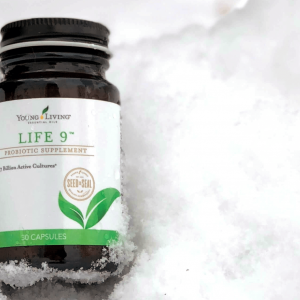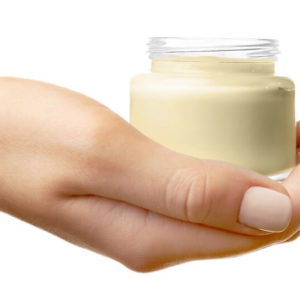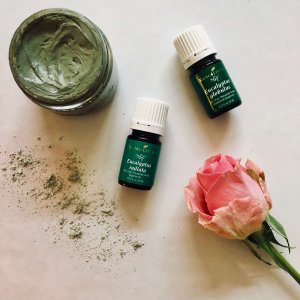I have read reports in the blog-o-sphere and even on reputable science education websites that essential oils can accumulate in the lungs and cause lipid pneumonia. Select pulmonologists have even claimed to see them on bronchoscopy. Other physicians are encouraging people to avoid using essential oils in a diffuser, regardless of the existence or non-existence of underlying lung disease. This is not true. It is not based in fact. The fear-based education needs to stop, and we need to commit to teach others the difference between fatty and essential oils.
What is Lipid Pneumonia?
Lipid (aka lipoid, aka cholesterol) pneumonia is a form of lung inflammation that develops when lipids (aka fats) enter the bronchial tree.
So, can Essential Oils cause Lipid Pneumonia?
I raise a resounding ‘No.’ They do not cause this type of lung inflammation nor have they ever been associated with it. I reviewed dozens of articles of case reports of lipid (or lipoid) pneumonia. None reported essential oils as a cause.
There are a ton of difference causes of lipid pneumonia. References reveal the following potential causes of lipid pneumonia: ingested cod liver oil, ingested mineral oil, facial application of petrolatum jelly, intravenous injection of olive oil, emulsifiers use in lung lavage, lubricant oils applied to tracheostomy, unspecified ‘nasal drops,’ inhaled insecticides containing mineral oil, ingested liquid paraffin, nasal instillation of animal- or vegetable oil in Mexican folk remedies, oil pulling with sesame oil, the medication amiodarone, nasal application of baby oil, ingestion of black seed oil, accumulation of lipid substance in the body (such as cholesterol), aspiration of machine oil, occupational exposure to fatty oil (patient had worked as a teppanyaki chef for 25 years), inhalation of herbicides, ingestion of a ketogenic diet, diesel-siphoning, Niemann-Pick disease, lung tumors, Legionella pneumophilia, even nematode parasite infections in opposums, and arguably inhalation of fatty-oil based electronic cigarettes cartridges.
None of these list essential oil as a cause of lipid pneumonia unless combined with a fatty oil. There has never been even one case report of essential oils alone causing lung inflammation of this type.
But! I read of one child suffering after inhaling essential oils!
After extensive research, you may come across one article that concludes lipid pneumonia was caused by an essential oil. In one case report, a 4-month old child inhaled aerosolized Gomenol® solution, and then contracted lipid pneumonia. This has lead to some commentary that conclude that niaouli essential oil (Melaleuca quinquenervia) causes lipid pneumonia.
However, what is not mentioned in the brazen headlines is that Gomenol® is a solution of niaouli compounded in glycerol, castor oil, and salts. While the headlines are shocking and panic-inducing, they fail to demonstrate that an isolated essential oil without combined use of a fatty oil can cause lipid pneumonia.
So where did this concern come from?
It appears that the Cystic Fibrosis (CF) Foundation issued a statement in 2014 following the 2013 publication of a teenager’s research project. The project, entitled “Pseudomonas A. Infections in The CF Lung: The Inhibition Of Bio-encapsulated Pathogens Within Simulated CF Conditions,” drew a strong reaction from the CF Foundation.
The CF Foundation issued a strong statement stating that peppermint oil appears to be safe by mouth, but that it may cause a lipid pneumonia. The Foundation concluded that peppermint essential oil is inappropriate in patients with CF. No references were cited. The CF Foundation did not mention any data that this had ever happened in any patient. They just gave a strong statement with no data to back it up. A potential case of fear of the unknown, instead of evidence based recommendations.
Also, the Chemistry of this Argument Makes No Sense
Furthermore, the chemical structures of essential oils do not lend itself to accumulation. Think about the last time you accidentally spilled a drop of essential oil. Did it stay around or evaporate? The very most basic definition of an essential oil is a small, compact, fat-soluble molecule that evaporates very quickly. Things that are volatile and evaporate quickly do not accumulate. They evaporate.
Honestly, there is no evidence to suggest that essential oils have ever accumulated in any body tissues. It is again the most basic chemistry of the molecules.
Bottom Line
Don’t believe the claim that essential oils cause lipid pneumonia. Because they have never done so. For more opportunities to separate truth from fiction about essential oils, please.
Opportunity
I never claim to be the end authority on any topic, especially a topic as broad and diverse as essential oils. If you are a physician and a patient has suffered lipid pneumonia due to use of essential oil exclusively, please contact me. If you are a researcher who has evidence contradictory to the conclusions in this article, you may contact me as well.









